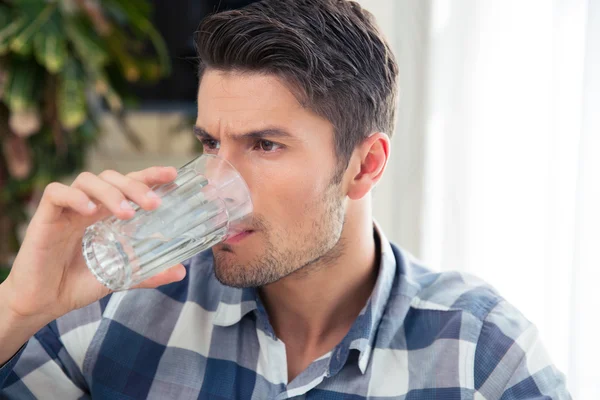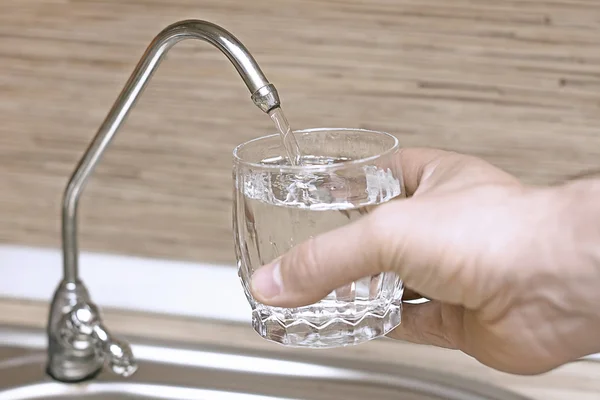Yes, drinking too much water can kill you. This is called water intoxication, or hyponatremia. It occurs when the sodium levels in your blood become too low. Sodium is an electrolyte that helps your body balance fluids. When you drink too much water, your kidneys can’t flush out the excess sodium fast enough. This causes the sodium levels in your blood to drop too low.

Table of Contents
Symptoms of water intoxication can include:
- Headache
- Nausea
- Vomiting
- Confusion
- Seizures
- Coma
- Death
In severe cases, water intoxication can be fatal.
Case study:
In 2007, a 28-year-old woman died after drinking too much water during a radio contest. The woman, who was trying to win a Nintendo Wii console, drank six liters of water in three hours. She died of water intoxication.
This case study highlights the dangers of drinking too much water. It is important to drink plenty of fluids, but it is also important to do so in moderation. If you are concerned about your water intake, talk to your doctor.
Tips to avoid water intoxication:
- Drink plenty of fluids, but don’t overdo it.
- Listen to your body’s thirst cues.
- Avoid drinking large amounts of fluids in a short period of time.
- If you are exercising or sweating a lot, make sure to drink fluids that contain electrolytes, such as sports drinks.
Here are some tips to help you stay hydrated without drinking too much water:
- Drink water throughout the day, but don’t drink large amounts of water at once.
- Listen to your body and drink water when you are thirsty.
- Eat fruits and vegetables, which contain water.
- Avoid sugary drinks, which can dehydrate you.
Water intoxication risk factors
Several factors can increase your risk of water intoxication, including:
1. Endurance sports: People who participate in endurance sports, such as marathons or triathlons, are at increased risk of water intoxication because they may sweat heavily and lose significant amounts of sodium.
2. MDMA use: MDMA, also known as ecstasy or molly, is a recreational drug that can increase the risk of water intoxication by stimulating the release of antidiuretic hormone (ADH). ADH helps your kidneys retain water, which can lead to sodium dilution if you drink too much water.
3. Low body mass: People with low body mass, particularly children, are more susceptible to water intoxication because their bodies have less water to distribute sodium.
4. Psychogenic polydipsia: Psychogenic polydipsia is a condition characterized by an excessive thirst and compulsion to drink large amounts of water, even when not dehydrated. People with psychogenic polydipsia may be at increased risk of water intoxication because they may drink more water than their kidneys can excrete.
5. Certain medications: Some medications, such as diuretics and tricyclic antidepressants, can increase the risk of water intoxication by causing your body to lose sodium or by interfering with the body’s ability to regulate fluid balance.
If you are at risk of water intoxication, it is important to take steps to prevent it. These steps include:
-
Monitoring your fluid intake: Don’t drink more water than your body needs. Listen to your thirst cues and drink when you are thirsty.
-
Replacing electrolytes: Along with water, consume fluids that contain electrolytes, such as sports drinks or coconut water, especially during or after prolonged exercise.
-
Being aware of your symptoms: Know the signs and symptoms of water intoxication so you can seek medical attention if needed.
-
Talking to your doctor: If you have any concerns about your risk of water intoxication, talk to your doctor. They can help you develop a personalized hydration plan and monitor your sodium levels.
Recent Water Death Case
On November 23, 2023, According to a news from Daily Mail, A 45-year-old wife and mother of two boys, Michelle Whitehead died after drinking too much water at a mental health hospital where a coroner said staff failed to adequately monitor her as they were ‘distracted’ on their phones.
She was detained at Millbrook Hospital in Sutton-in-Ashfield, Nottinghamshire, in 2021 displaying symptoms of paranoia, irritability, agitation, and reality distortion.
Michelle Whitehead’s husband said she would still be alive today if her carers had observed her properly.
According to the news, Mrs. Michelle Whitehead started drinking water excessively and went into a coma – but the staff present did not realize this until it was too late.
In the Prevention of Future Deaths report, coroner Laurinda Bower outlined numerous failings admitted by Nottinghamshire Healthcare NHS Foundation Trust, including ‘inadequate monitoring’ as staff were ‘distracted by the use of their personal mobile phones’, even though it was prohibited onwards.
In the report sent to the trust last month, Ms. Bower said she was concerned more people could die ‘unless action is taken’. She said Mrs Whitehead, was observed excessively drinking from a tap once, but as she ‘was nursed on ten-minute observations, and had unsupervised access to water.
It is not possible to know how much she consumed or over what period. Mrs Whitehead ended up over-hydrated, leading to severely low sodium levels causing fatal swelling in the brain.
An inquest jury concluded in September that the failings had ‘probably more than minimally’ contributed to her death.
Her widower Michael, 49, of Rainworth, Nottinghamshire, said: ‘When Michelle [seemingly] fell asleep, staff should have realized something was very wrong. Had they acted earlier Michelle would have been taken to ICU (intensive care unit) and put on a drip.
That would have saved her life. ‘By the time they realized what was happening, the same course of action was far too late.’ Mr Whitehead said his ‘warm, caring and easy to love’ wife had suffered a ‘total breakdown from the person she normally is’ in the last days of her life.
He said the couple met as teenagers and were together for 30 years and married for 22. Mrs Whitehead gave up her job as a nursery nurse when one of their sons was born with Down syndrome.
She was then a full-time carer for 19 years. The probe into her death found her excessive water consumption was due to psychogenic polydipsia, well documented in psychiatric disorders. However, staff failed to diagnose the condition.
She was given tranquillisers and seemingly fell asleep, but went into a coma. The jury heard staff did not realize anything was wrong until four hours later.
Mrs Whitehead was admitted to King’s Mill Hospital, Mansfield, and died two days later. The trust admitted eight failings which also included staff failure to adhere to policy after Mrs Whitehead was sedated, leading to inadequate assessments of her.
There was also a delay in a doctor arriving, and in admitting paramedics to the building. Ifti Majid, chief executive of the trust, apologized to Mrs Whitehead’s family for her ‘quality’ of care and said the trust was considering the findings of the jury and coroner.
Another case reference
In 2018, a 28-year-old woman in California died after drinking too much water during a triathlon. The woman had been running for several hours when she began to feel dizzy and nauseous. She collapsed and was taken to the hospital, where she died a few hours later. An autopsy revealed that the woman had died of water intoxication.
This case highlights the importance of staying hydrated, but also of being aware of the dangers of drinking too much water. If you are exercising or engaging in other activities that cause you to sweat a lot, it is important to drink water regularly, but in moderation. You should also listen to your body and stop drinking water if you start to feel unwell.
If you are concerned about your risk of water intoxication, talk to your doctor. They can help you develop a safe hydration plan for your individual needs.
NOTE: Water intoxication is most likely to occur in people who are exercising or engaging in other activities that cause them to sweat a lot. This is because sweating can lead to a loss of sodium, which can make you more susceptible to water intoxication if you drink too much water afterward.
If you are concerned about your water intake, talk to your doctor. They can help you create a personalized hydration plan.
Note: This article is written based on scientific evidence found by the Coza24.com team. Sources are duly referenced with keywords hyperlinked to source websites and are clickable for reference.









